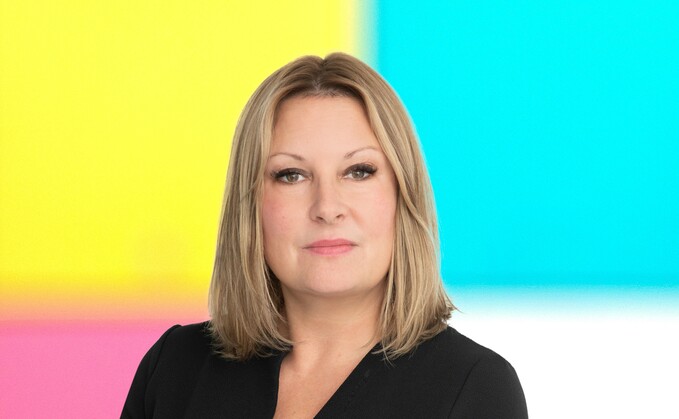
Market volatility has been an unrelenting feature of 2022 and while corrections are inevitable, Julia Bahr finds it makes investors edgy and uncertain
Professional Adviser talks to advisers about their strategies to deal with clients who are feeling concerned in times of uncertainty.
What financial planners can do to help alleviate the problem and how human emotions affect investment thinking are some of the questions we are asking.
Chapters Financial director Keith Churchouse told PA that the first point for all was not to panic and "continue to make considered choices where you can".
He says: "We normally allocate funds across a range of asset classes and sectors to meet a client's needs, and this can offer options to extract funds if required without detriment or significant detriment. Indeed, some may advocate that now is a good time to add to investment funds if spare capital is available.
"We have also always been advocates of clients maintaining easy access cash funds for a smaller percentage of their overall wealth and this can be a route to addressing any immediate shortfalls in cashflow. I appreciate that inflation is eroding real cash values at this time, and this may continue for the months ahead."
Churchouse adds: "If appropriate, holding firm on financial planning decisions is well worthwhile, noting that financial planning is usually about the longer-term view, rather than immediate events/risks."
When it comes to helping people with any concerns, client communication remains key, according to Churchouse.
"We wrote to clients following our normal quarterly autumn newsletter, to give them an additional update following the Mini Budget. This has been well received and has served to reassure recipients."
He says it should be noted that the global economy is shifting to a higher inflation/interest rate environment at the moment.
"We all need to consider this transition. I do not expect the economic days of the early 1990s to return, but it is clear that the days of the near-nil interest/inflation period are also over."
Churchouse tells PA that one of his clients reacted to the firm's newsletter, thanking Chapters Financial for the update on the financial government announcements and demonstrating the importance of keeping clients updated. The client said: "I note that my pension plan has lost 15% of its value since I retired so I would welcome a chance to meet in person to discuss the current situation and for a review of our current pension and savings arrangements."
Another said: "Thanks for the summary, useful. I look to you to advise us if we need to rethink any of your strategy for us. We are appalled by Truss and Kwarteng's activities. I'm afraid we have no confidence in them. I would also say I'm not surprised I expected to be disappointed, but it feels way worse than that. We are confident you've got our backs, but let me know if anything needs review."
Understanding clients' risk attitudes
Rowley Turton Chartered financial planner Scott Gallacher told PA that understanding a client's attitude to risk was crucial to avoiding problems further down the line.
"I'd say that this should be dealt with at the start of the client/adviser relationship."
He adds: "Having confirmed your clients attitude to risk (ATR), it's vital that you fully explain the downside of any investments, pensions, plans, etc that they hold. I explain this downside in both percentage and cash terms at outset, and review meetings thereafter.
"Put simply, if you're a medium risk client with £300,000 invested, you should expect a 30% downside every five to ten years, so your £300,000 could be £210,000 or even less. If you're unhappy with this, I'd want to know before we invest your £300,000 not when you've ‘lost' £90,000."
Gallacher says that for more cautious clients, he tries to use a combination of strategies to minimise risk. This might include with-profits pensions where clients could obtain a future market value reduction or free guarantee exit date fixed term annuities to cover periods until state pensions or defined benefit pensions commenced, he said.
"I also use cash based strategies, including cash based drawdown as a bridging pension and lower risk investment funds/pensions in line with the clients ATR.
"Additionally, more strategic bond/alternative solutions to minimise the risks of the recent events can be used."
Gallacher adds: "We have a number of clients where we use these strategies. And, for those clients it's incredibly reassuring to explain that there is no market risk when we use those."
Former financial planner and personal finance expert Anna Sofat says that market volatility was a necessary part of any investment plan.
"However clients don't really worry so much unless there are sharp falls in values and a great deal of uncertainty in general not just in the markets such as in 2008 when no one was quite certain where the banking crisis would land us all, or March 2020 when there was so much unknown about just what Covid would mean for us all or more recently with the Ukraine war."
Sofat says at times like this, clients will be worried and she will typically reassure them by revisiting the rationale for the financial plan she had agreed with them initially, and the emergency cash fund that was allocated for their short-term needs so these can be met easily.
She adds that it is also important to talk to clients about the level of risk they are taking and what that had meant in respect of falls in value of their investments in the previous market downturns.
"For those who have been investing for a while this can be very reassuring, especially as often those most worried are more risk averse and so their portfolios would not necessarily fall as much they might fear," she explains
"For those clients really worried, I would also review their current situation to see if anything has changed to warrant a change in strategy, it usually does not as there are annual review meetings but just the exercise can often be reassuring for the clients.
"I would also share examples of the very few clients in the past who allowed their worries to override good advice."
One of Sofat's clients sold her small portfolio to fully invest in gold in the aftermath of the 2008 market crash because she was so worried about the economic crisis leading to civic chaos.
Sofat says the client felt that gold bullion would shelter her from any fallout and the legacy for her children would remain intact.
"She bought the gold at about $1,700 per ounce and has been sitting on a loss ever since, apart from short periods in 2019, 2021 and 2022," Sofat says. "Over the years she has had no dividends and the value of her holding has been eroded by inflation and lack of any real growth."
"If the client had remained invested, she would be so much better off now despite the ups and downs over the past 15 years."














